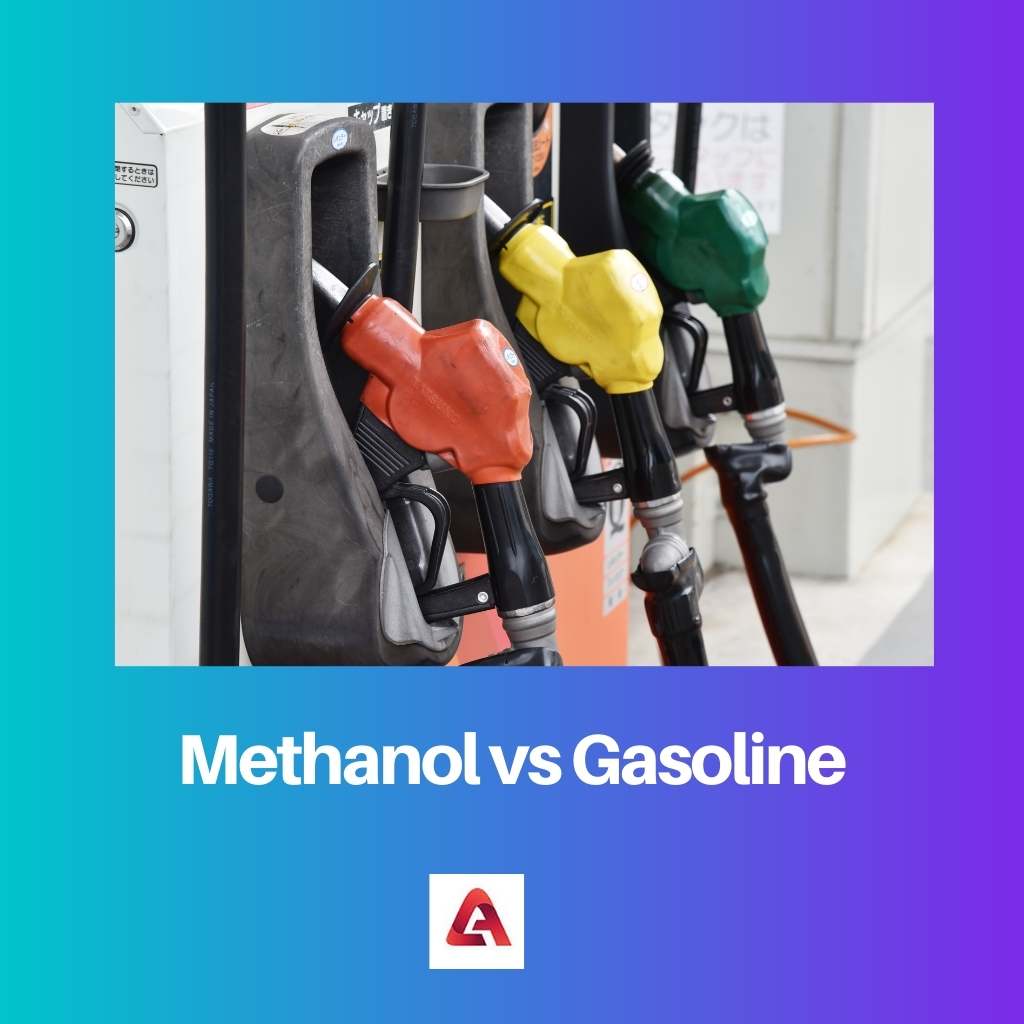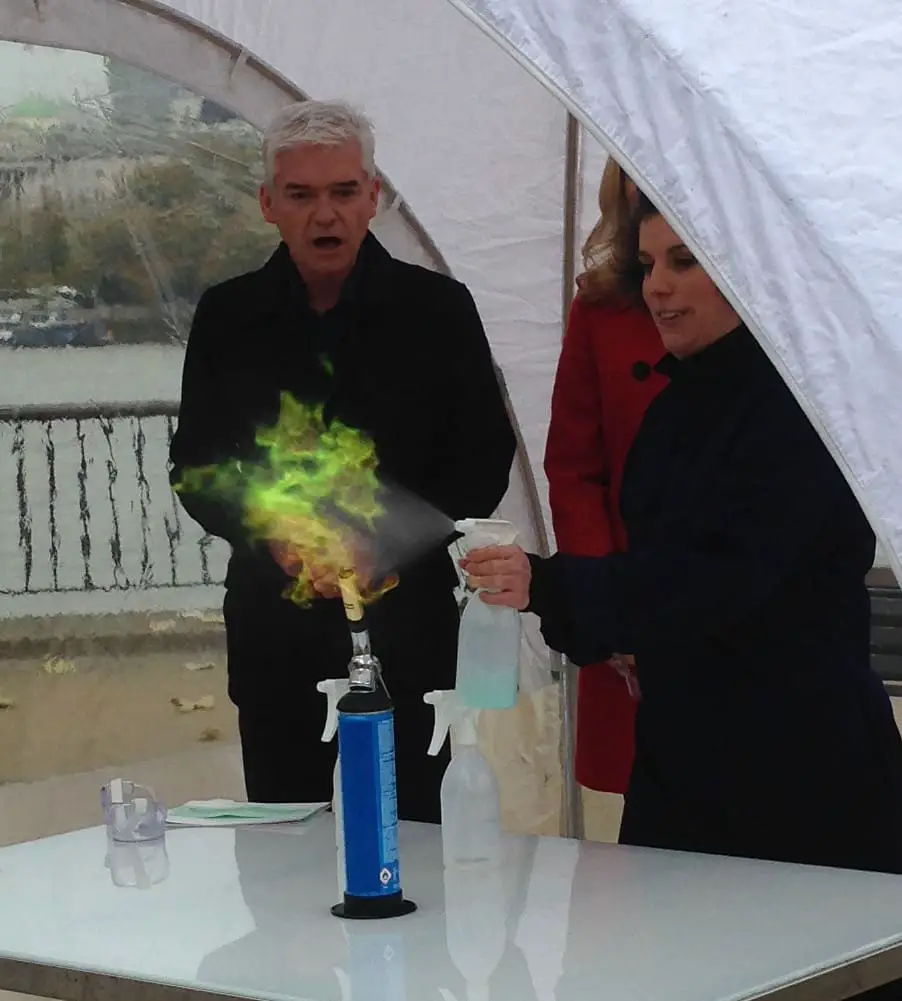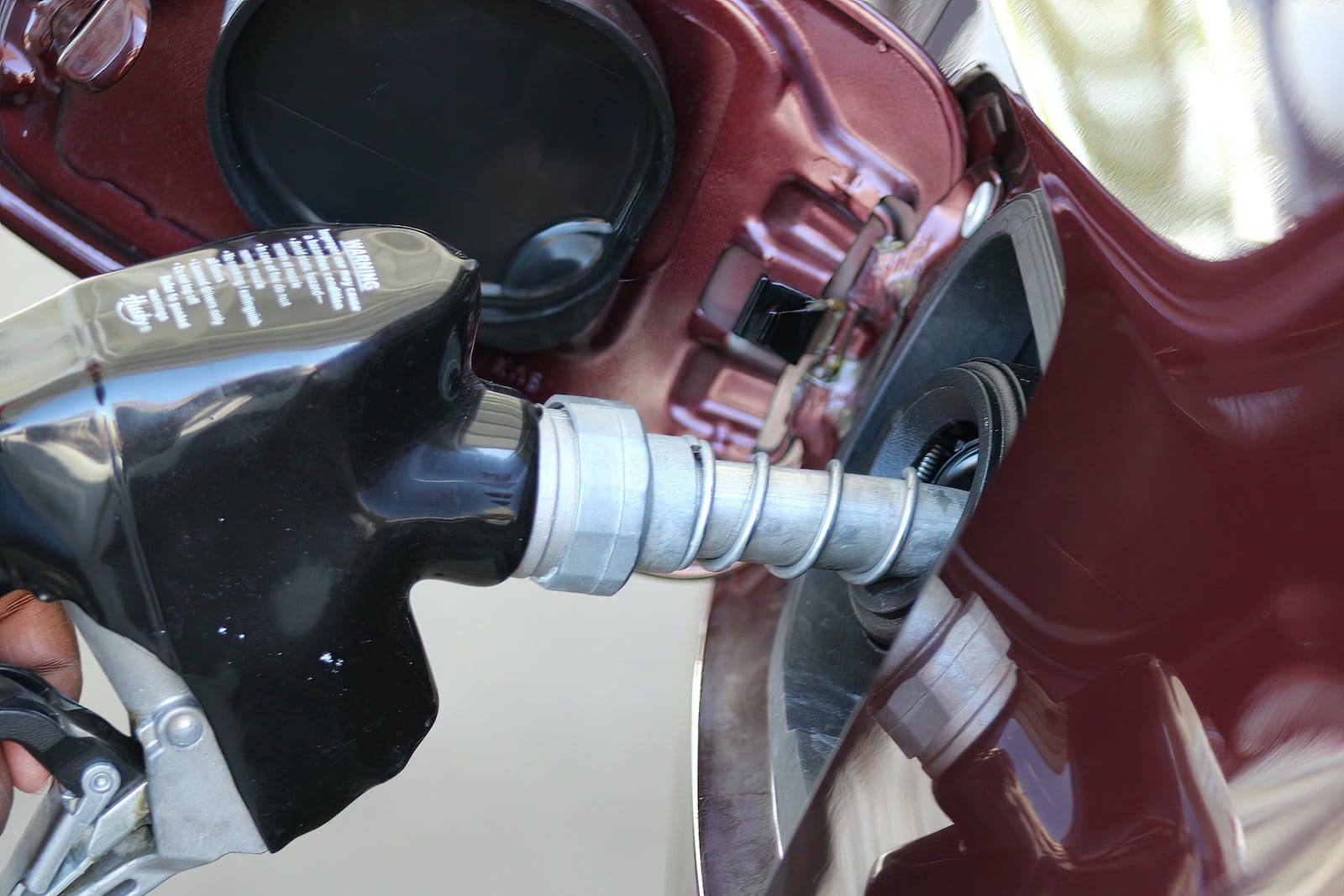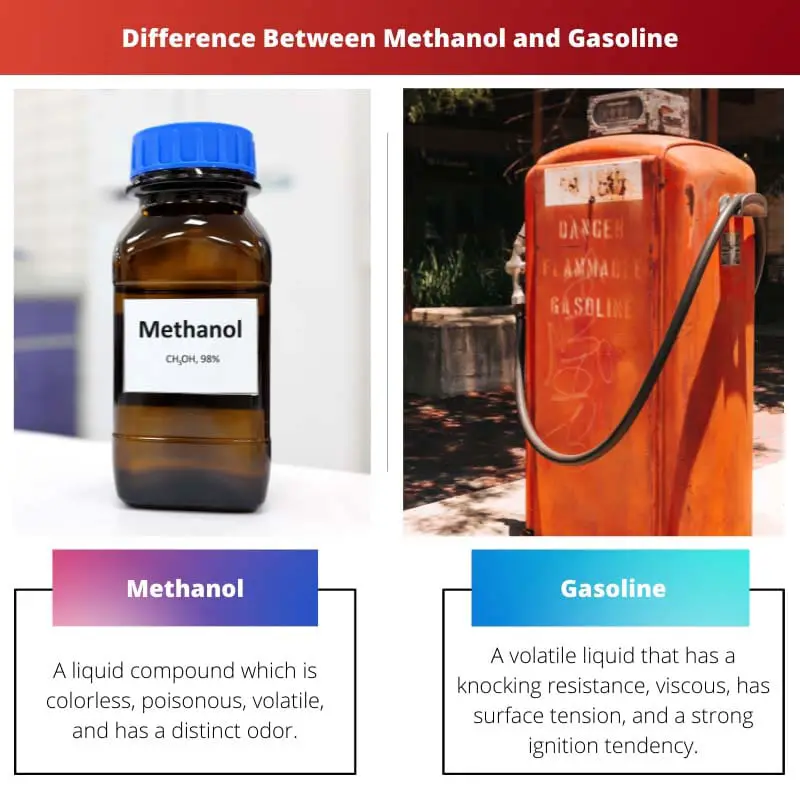Fuels run the industry. They form the backbone of any domain of industry. They are the resource that is essential as they provide energy. In the automobile industry, the two major types of fuels used in engines are methanol and gasoline.
Key Takeaways
- Methanol is a simple alcohol with the chemical formula CH3OH, while gasoline is a complex mixture of hydrocarbons.
- Methanol has a lower energy density than gasoline, reducing fuel efficiency.
- Methanol burns more cleanly than gasoline, producing fewer harmful emissions and pollutants.
Methanol vs Gasoline
Methanol is an alternative fuel made from natural gas, oil and coal. The liquid is light, colourless, and poisonous with a distinct odour. It is used to manufacture chemicals and synthetic fabric. Gasoline is a flammable liquid produced from crude oil and petroleum liquids. It is used to fuel vehicles, planes and other automobile industries.

Methanol can be chemically produced by mixing carbon dioxide and hydrogen. It is widely used in internal combustion engines as a fuel. Methanol is used as a substitute for gasoline since it is environmentally friendly and is also considered a future biofuel.
On the other hand, the gasoline production procedure for every refinery is different since they add several other substances to make the fuel efficient and high-performing.
It is widely used for tuning engine performance as it reduces harmful exhaust emissions. It is also used in the dilution of paints.
Comparison Table
| Parameters of Comparison | Methanol | Gasoline |
|---|---|---|
| Physical properties | A liquid compound which is colourless, poisonous, volatile, and has a distinct odour. | A volatile liquid that has a knocking resistance is viscous, has surface tension, and a strong ignition tendency. |
| Chemical properties | It boils at 64.96 °C and solidifies at -93.9 °C. It can fork explosive mixture, and the flame is nonluminous. | It consists of four main types of hydrocarbons – alkanes, alkenes, isoalkanes, and cycloalkanes. |
| Common names | Wood alcohol, wood spirit, carbinol, methyl alcohol, methylol, hydroxy methane, methylene hydrate, pyroligneous spirit, methyl hydroxide, columbian spirit, and other. | Petrol, motor spirit, natural gas |
| Applications | Used in the manufacture of several chemicals like acetic acid, formaldehyde, methyl tert-butyl ether peroxy acids, anisole, methyl benzoate, and several other chemicals. It is also used as a base in synthetic fabrics, acrylic plastic, adhesives, plywood, paint, agrichemical products, and others. | As a fuel in the automobiles, vehicle, and aviation industry, tuning engine performance by reduction of emissions and also as a solvent for diluting paints |
| Price point | Expensive | Cheaper |
What is Methanol?
Methanol is a simple type of alcohol. It is light, colourless, volatile, flammable, and has a distinct sweet and pungent odour. It is also known as methyl alcohol or methyl hydrate.
It is a polar solvent. The chemical formula of methanol is CH3OH. The molar mass of the compound is about 32.04 grams per mole.
Methanol is a methyl group linked to a polar hydroxyl group, also known as wood alcohol, as it can be produced by the destructive distillation of wood also.
The chief production procedure of methanol is by hydrogenation of carbon monoxide in industries. Some natural sources of methanol production are phytoplankton, anaerobic bacteria, and the interstellar medium.
It is used in the manufacture of several chemicals like acetic acid, formaldehyde, methyl tert-butyl ether peroxy acids, anisole, methyl benzoate, and several other chemicals.
It is also used as a base in synthetic fabrics, acrylic plastic, adhesives, plywood, paint, agrichemical products, and others. Methanol has hydrogen bonding as the intermolecular force.
The compound’s boiling point is at 64.7 °C, and the solidifying point is at -97. 6 °C. The vapour pressure of the compound is at 13.02 kPa.
Apart from the numerous advantages, there are many hazards, like methanol is highly toxic to humans as well as animals.
It can cause damage to the eyes, kidneys, heart, liver, and central nervous system if exposed regularly. It can cause permanent blindness as methanol destroys the optic nerve.

What is Gasoline?
Gasoline is a transparent chemical liquid that is mainly used as fuel. It is a petroleum-derived product. It consists of organic compounds that are derived from processes like fractional distillation.
Crude oil is the main source of gasoline. Gasoline may also contain chemicals that contain oxygen, like ethanol, ETBE, and MTBE, that help to improve combustion.
Gasoline is also called petrol. British refiners called gasoline ‘motor spirit’. Gasoline has several other products, like compressed natural gas (CNG), liquefied petroleum gas (LPG), and liquefied natural gas (LNG). Gasoline was first used in Otto engines.
The exact composition of gasoline varies since every refinery adds different hydrocarbons to make it fuel-efficient.
The various compounds added to gasoline by different refineries are reformate, catalytically cracked gasoline, hydrocrackate, alkylate, isomerate, butane, and many other compounds.
Gasoline is a stable compound but breaks down if stored over a long time.
Apart from the various uses and advantages of the product, gasoline contains carcinogenic compounds, and the combustion of gasoline produces a huge amount of carbon dioxide that can further trigger adverse climatic change.
It can even auto-ignite in high-compression internal combustion and damage the engine and cause engine knocking. So, it is essential to control the leakage of the product during production, transportation, and delivery, which would minimize the hazards.

Main Differences between Methanol and Gasoline
- Methanol is made from natural gas, coal, and oil, while petroleum produces gasoline.
- Methanol is an expensive compound, while gasoline is a cheaper product comparatively.
- Methanol can be used as a substitute for gasoline, while gasoline cannot be used as a substitute for methanol.
- Methanol cars consume a heavy amount of methanol, while gasoline is consumed in fewer amounts in gasoline cars.
- Methanol is a poor lubricant and can rust metals, while gasoline is mixed with other hydrocarbons and made efficient as a fuel.
- Methanol is considered a biofuel, while gasoline is not environmental-friendly.





